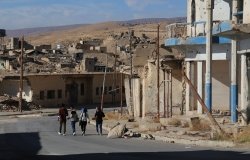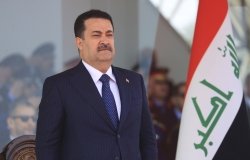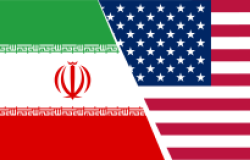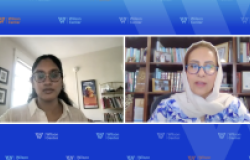<b>Live Webcast:</b> Advancing Human Rights Under Adverse Conditions
A Director's Forum with Shirin Ebadi, 2003 Nobel Peace Prize Winner; Iranian human rights lawyer.
Overview
In this Director's Forum, Shirin Ebadi, Iranian lawyer, judge, activist, and writer, spoke about her struggle to secure basic human rights in Iran and to dispel the notion that Islam and human rights, particularly for women and children, are incompatible.
Ebadi began her remarks recounting the effects of the 1979 revolution on the nation and particularly on women. "Women endured the greatest pain. Women's rights in post-revolutionary Iran regressed," Ebadi said. Following the revolution, Ebadi, then a judge on the city court, along with the other 100 women judges in Iran, were told that according to Islamic law, women could not serve as judges. Upon their dismissal from the bench, Edabi and her colleagues were forced to take administrative positions, serving the court that they had once presided over. Unwilling to accept this, Ebadi left and instead requested a license to practice law privately from the Iranian Bar Association. She was denied again and again, but persevered after 7 years. During the 7 years she was at home, she wrote 11 books, 2 of which are about the rights of the child. Also during this time she set up an organization in Iran called the Association for Support of the Rights of the Child, now with more than 500 members.
Both in addition to and connected to her work for women's and children's rights, Ebadi has sought to publicly and officially dispel the notion that Islam and democracy are incompatible. She cited several current laws in Iran that disregard the rights of women----the practice of polygamy and the fact that two female witnesses are required to replace one male witness. But, according to Ebadi, "With 63% of our university students being women, these laws do not fit the lifestyle of Iran." The nation's women were told that these laws that subjugated women emanated from Islam and therefore could not be changed. Women were told that they either must abide by these laws or they did not accept Islam. Ebadi made it her goal to find and to prove that within Islam's texts, these laws were not sanctioned by the religion. Through intense study of the Islamic texts, Ebadi was able to argue with the government that the oppression of women does not in fact come from Islam, but instead is the result of a patriarchal culture.
Upon further reflection, Ebadi concluded that democracy is not compatible with the patriarchal, tribalist culture that is currently dominant in Iran. In fact, she extrapolated from her observations of women's oppression in Iran, that the legal status of women is closely related to the presence of democracy. "It was through this methodology that I began to pursue this activism." In citing the achievements of this struggle for democracy and human rights in Iran, she noted that 13 years after she lost her seat as a judge, the judiciary proved that women can become judges. She cited still more victories—due to efforts of women activists in Iran—such as the reversal of certain custody laws that took power away from women. The struggle for Ebadi and other activists in her country are not over yet however. "I am not saying all problems are resolved. We have numerous hurdles to overcome."
Ebadi's final point concerned the portrayal of Islam as a violent religion that is fundamentally at odds with the West. She lamented that the violent acts of a limited few under the name of Islam have portrayed the religion unfairly. "If a human being has been killed in the name of Islam, the name of Islam has been taken advantage of. Islam disapproves of terrorism." She went on to say that all civilizations and religions have many commonalities and that to put an end to ideological wars, we need to focus on our common aspirations, such as human rights and dignity.
Hosted By

Middle East Program
The Wilson Center’s Middle East Program serves as a crucial resource for the policymaking community and beyond, providing analyses and research that helps inform US foreign policymaking, stimulates public debate, and expands knowledge about issues in the wider Middle East and North Africa (MENA) region. Read more
Thank you for your interest in this event. Please send any feedback or questions to our Events staff.










